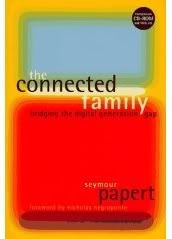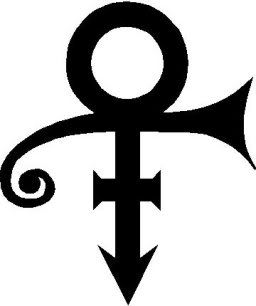I'm (not) gonna party like it's 1969
Technorati tags: Observations, Opinion, Nationhood, Malaysia
Walski's very wordy post pre-warning forenote: This post is rather wordy, and is, in effect, an editorial on something Walski observed. Apologies for the dryness, but it had to be done...
On Sunday, Walski posted an editorial from The Star onto his Notes application over at Facebook. You Facebookers out there probably already know this, but you can tag friends on your Notes post. What this means is that the ones you tag get a notification that you've posted something, and they can come read, and comment, or flame, on your note.
Now, on purpose, Walski included someone he knew would disagree with the editorial, which touched on the arrest, under the ISA, of RPK, Teresa Kok, and Sin Chew reporter Tan Hoon Cheng, stating that it was an "affront to human rights". It was an experiment, of sorts, to prove something that Walski's been thinking about for a while.
Needless to say, a very vibrant debate ensued... and is still ongoing, as of the time Walski's writing this.
But that's not the point of this post.
 One glaring observation related to the posting above, plus the opinions of the various sides of the argument Walski's read elsewhere on the Internet is this - there exists a big generation gap of ideals in as far as nationhood is concerned.
One glaring observation related to the posting above, plus the opinions of the various sides of the argument Walski's read elsewhere on the Internet is this - there exists a big generation gap of ideals in as far as nationhood is concerned.
On the one hand, you have those who are of the opinion that unconscienable, but "necessary" laws, such as the ISA, are still required to maintain peace in the country. As is making certain issues verbotten, like race and religion, from being publicly debated. For the sake saving Walski from potential Carpal Tunnel damage, let's just call this lot Generation A.
On the other hand, you have those who aspire for a freer society, a more democratic (in the truer sense), equitable and accountable government, plus do away with unjust legilature that can potentially be abused. Let's call this lot Generation B.
The typical Gen-A ("generation" is too damn long a word to type repetitively) is usually older in age, not too far from the median age of the Malaysian executive branch of government, but more importantly are those who think that the Status Quo works, has worked since forever, and therefore the boat should not be rocked - those Malaysians who don't like the way things are can generally go find some other place to live - okay, perhaps an overgeneralization, but you get the idea. And all their lives, the only governments they've known are the various Alliance/BN governments since 1957 to the present. They may have grouses about the government of the day from time to time, but by and large they see BN as the only government that can rule. Anything Opposition-related is therefore evil, and should be done away with altoghether, if possible. Generally, they buy whatever the government's point of view is, as transmitted to them via the mainstream media, print or electronic, seldom questioning the POV like it were the gospel truth, and truly for the good of all. For them, it's the Right-wing, ethnonationalistic way, or the highway - it's worked since forever, and so it shall be till kingdom come.
Gen-B, on the other hand, tend to be of a younger age typically, either having come of age within the last 5 years or so, or have been exposed to a lot more of the outside world, courtesy of information barriers being continually broken down by increasing pervalence of the Internet, and in certain cases having travelled extensively, or even lived, abroad. Gen-B is vocal about injustices that they see, and cannot see how incumberences on the people can be for any greater good. They see the mainstream media as government propaganda vehicles, more often than not, and usually seek alternative sources of news and information, in addition to the "official" version of events. Gen-B types typically detest the perceived shrinking of personal space, and the increasingly intrusive nature of government. While they don't outright reject the Status Quo (although some do), they do not see maintaining the Status Quo for its own sake to be of any benefit either. They are more receptive to change, if the change makes sense, and can make their lives, and the nation's future, better.
Now with any sweeping categorizations like this one, there is bound to be those who don't quite fall snugly into either the Gen-A or Gen-B baskets. More often than not, however, there will be dominance of one over the other. In other words, age-wise one could be Gen-B, but viewpoint wise, Gen-A. And, of course, vice versa.
But, believe it or not, both Gen-A and Gen-B do have one thing in common - they cannot see eye to eye on certain issues. Like about the ISA, for instance.
(freeze-frame time-warp, and other anomalies, in the full post)
Cutting to the chase, you'd probably have guessed, if you've been following this blog long enough, or if you know him personally, that Walski is more of a Gen-B kinda guy. So if you're a Gen-A'er, you'll probably find this post to be biased. But Walski thinks that both Gen-A and Gen-B have another thing in common - they both love this country. It's just that their outlooks can be, and frequently are, incongruent.
Be that as it may, allow Walski to offer you some Gen-B perspective. Feel free to dissent or comment, as Walski is more than open to differing views.
First off, we are no longer living in 1969 - the turning point at which has shaped the path, on which Malaysia finds herself 39 years later today. Times have changed, and the demographics have changed. But somehow, there seems to be a kind of freeze-frame time-warp in as far as the official UMNO/BN ethnonationlist rhetoric goes. We are, apparently, still living in 1969. Policies intended to be temporary, and to enable social equality amongst all Malaysians, has for some reason morphed to become a birthright never intended.
And the reason for this, in Walski's opinion, is that the policy has not changed much, nor has it adapted much to the changing landscape our nation has experienced in the last almost 40 years. Instead, fear-mongering is used to keep the better part of half the population in fear of losing their rights. Be it from an ethnicity, or religious perspective, it all boils down to the ethnonationalistic world view that continues to be perpetuated. How else can you explain the constant reminder-rhetoric about non-Malays being given citizenship in 1957, upon the magnimity of the Malays, and therefore, never should the nons question the status quo. Hasn't it occured to them that this rhetoric holds little relevance when accuser-and-accusee are both equal citizens, born and raised in the country, and only know Malaysia as their home?
Another time-warp paradigm is the perpetuated idea that UMNO today is the same UMNO that fought for independence. Dulu, Kini dan Selamanya (Then, Now and Everafter) may be their favorite tag line, but the reality is that the party is so mired in the Dulu, that they can't see the real kini, and therefore will be blinkered selamanya. With some exceptions, to be fair, but too few, and too far between.
And because of that, impending change brings great fear. But if there is one constant in this universe, it is change. Sort of an oxymoron, perhaps, but that's the way the cookie crumbles, Walski's afraid. And it is because of this fear, and the mental paralysis caused by it, that a radical change for this country is badly needed.
The Pakatan Rakyat, led by Anwar Ibrahim, may not be the best choice. But for the moment, it is the only choice, as far as this Gen-B'er can see. BN is so far down the path to self-destruction that it will be a long time before they can regain the confidence of the nation. Recent events are merely icing on a cake that's long overbaked.
Like it or not, the world is becoming increasingly globalized, for better or worse. Walski is sure that most, if not everyone, realize this. And yet, from time to time, we hear the almost comical calls to resist globalization for the sake of religion, race and country - increasingly today, in that order. We are, inevitably, moving towards a symbiotic world, where happenings in one corner has a real effect on the whole. The most apparent today are from economic and information standpoints. But these standpoints will expand to include other aspects of life in the future, whether we like it or not.
We are then left with two choices - adapt to the change, or resist, and risk being inevitably run over by it. Particularly, if we insist on our minds and outlook being stuck in this freeze-frame time warp that this Gen-B'er observes to be the case.
Sure, Walski likes to party, too - but in the now, and certainly not in 1969.
 Walski's borrowed blog post title accredidation footnote: For those of you who might not be as musically inclined, the post title is a play on words, based on lyrics from Prince's 1999. For reasons only known to him, the artiste later changed his name to a nameless symbol (shown on the right, and later called "Love Symbol #2"). Music journalists, equally perplexed, then coined the phrase The Artiste Formerly Known As Prince (TAFKAP, for short), because quite frankly they didn't have a clue what else to call him. Walski, on the other hand, called him "Squiggle". Squiggle then decided to rename himself Prince, a moniker he's kept until now. Was the change really necessary? Or the change-back? Who knows... But change he definitely did. Constantly, throughout his career.
Walski's borrowed blog post title accredidation footnote: For those of you who might not be as musically inclined, the post title is a play on words, based on lyrics from Prince's 1999. For reasons only known to him, the artiste later changed his name to a nameless symbol (shown on the right, and later called "Love Symbol #2"). Music journalists, equally perplexed, then coined the phrase The Artiste Formerly Known As Prince (TAFKAP, for short), because quite frankly they didn't have a clue what else to call him. Walski, on the other hand, called him "Squiggle". Squiggle then decided to rename himself Prince, a moniker he's kept until now. Was the change really necessary? Or the change-back? Who knows... But change he definitely did. Constantly, throughout his career.
















